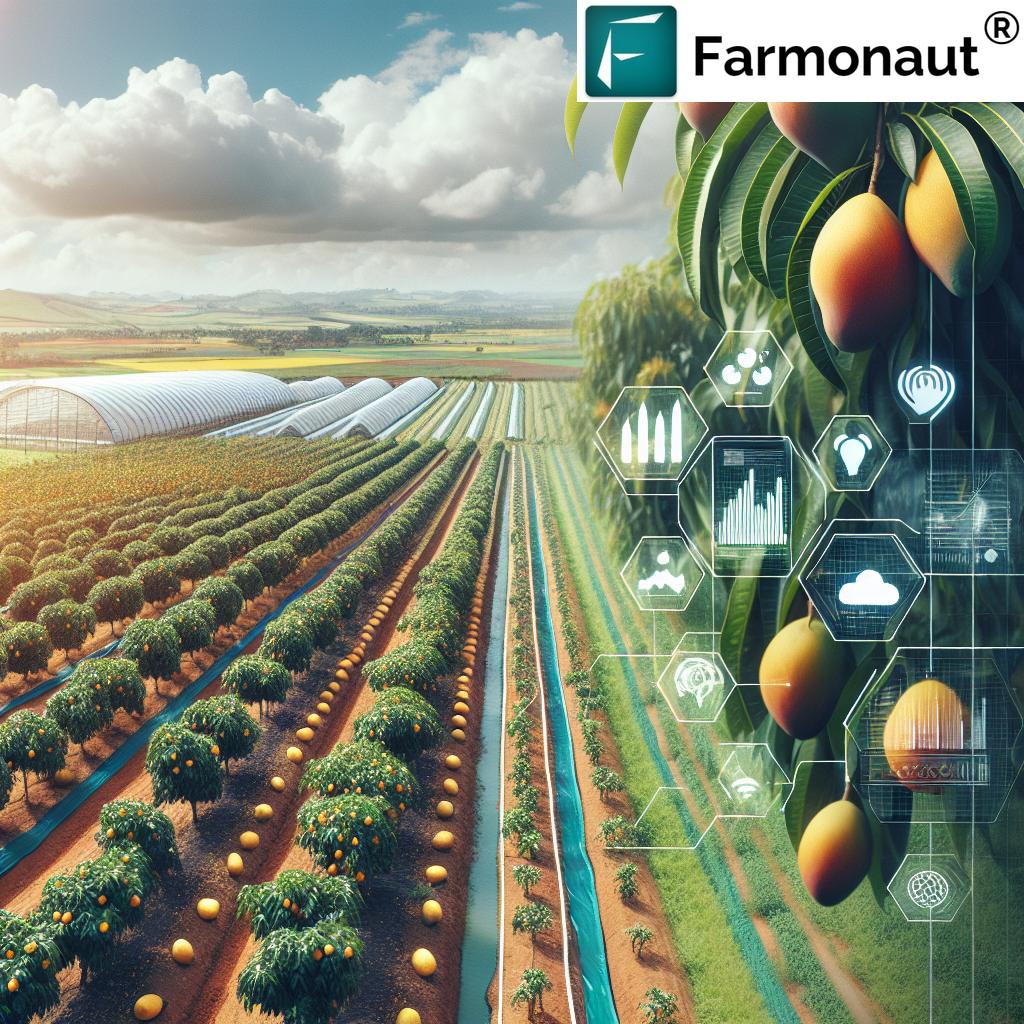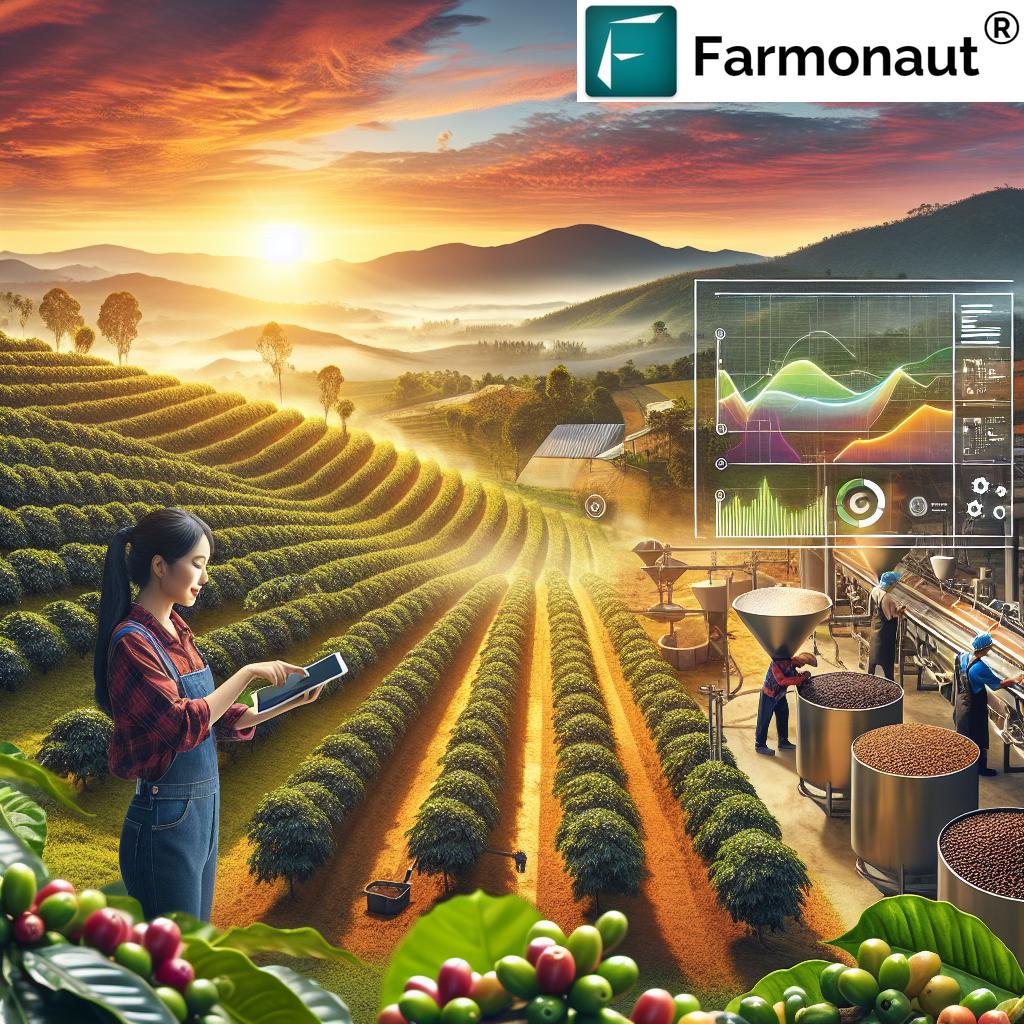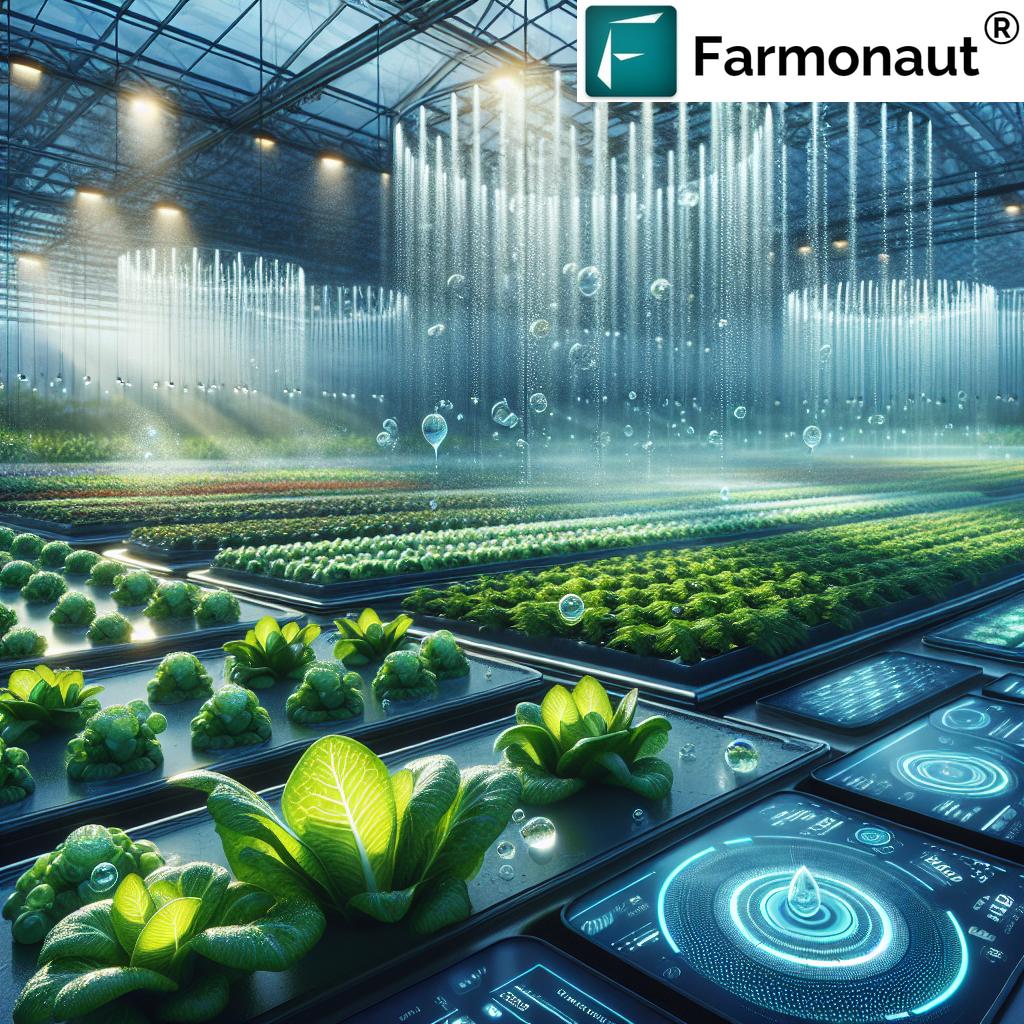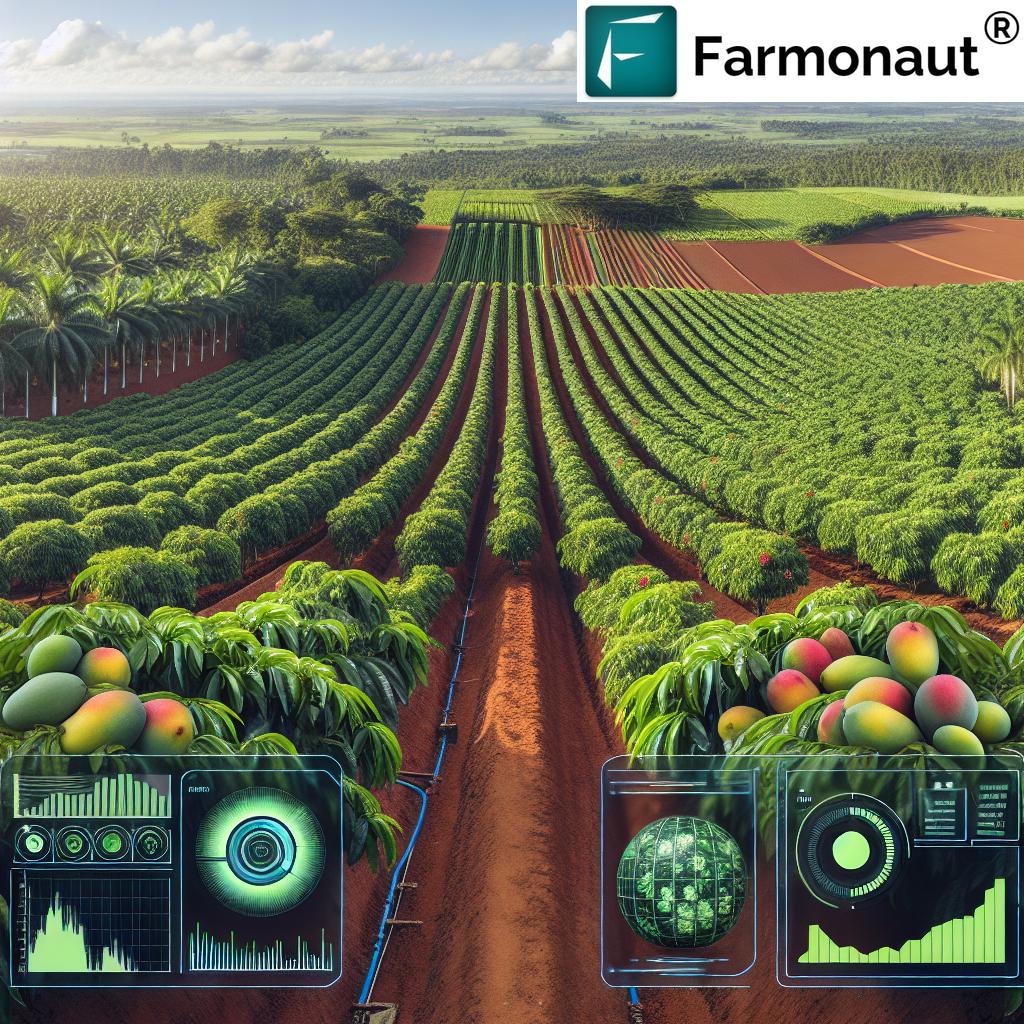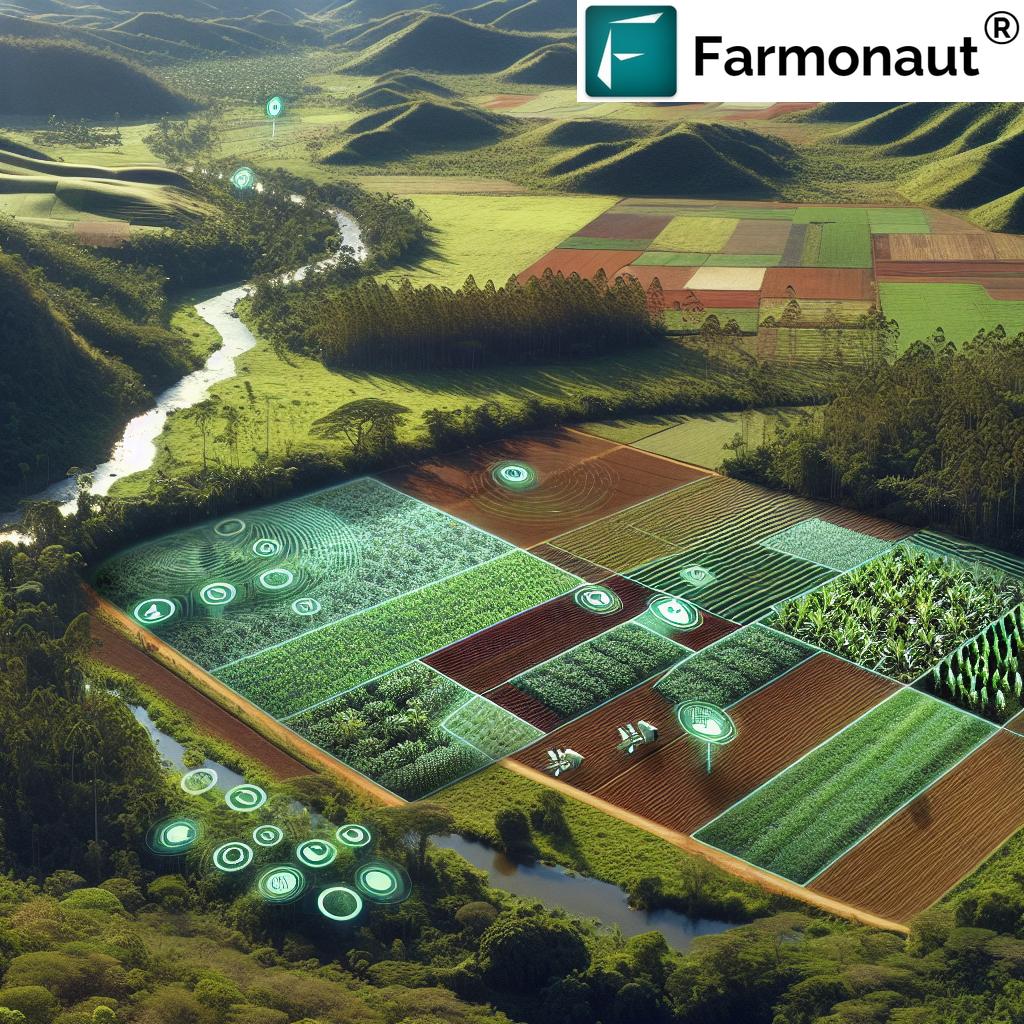Guyana-India Collaboration: Revolutionizing Agriculture with Smart Farming Solutions for Sustainable Economic Growth
“Guyana’s agricultural sector could see a 30% increase in crop yields through precision farming techniques and smart irrigation systems.”
As we witness a historic moment in international relations, we’re excited to explore the transformative potential of the Guyana-India collaboration in revolutionizing agriculture. This partnership between a rising South American nation and a global economic powerhouse presents unprecedented opportunities for implementing cutting-edge agricultural technologies and sustainable practices. In this comprehensive analysis, we’ll delve into how this collaboration could reshape Guyana’s farming landscape, boost economic growth, and set a new standard for agricultural innovation in developing nations.
The Dawn of a New Era in Guyana’s Agriculture
Guyana, a country blessed with vast agricultural potential, stands on the brink of a farming revolution. With the upcoming visit of Indian Prime Minister Narendra Modi, we’re seeing the groundwork being laid for a partnership that could transform Guyana’s agricultural sector. This collaboration comes at a crucial time, as Guyana seeks to diversify its economy and enhance its food security.
India, with its rich agricultural heritage and technological advancements, brings to the table a wealth of expertise in sustainable agriculture practices and agricultural technology advancements. This knowledge transfer could be the catalyst Guyana needs to optimize its agricultural output and establish itself as a regional agricultural powerhouse.
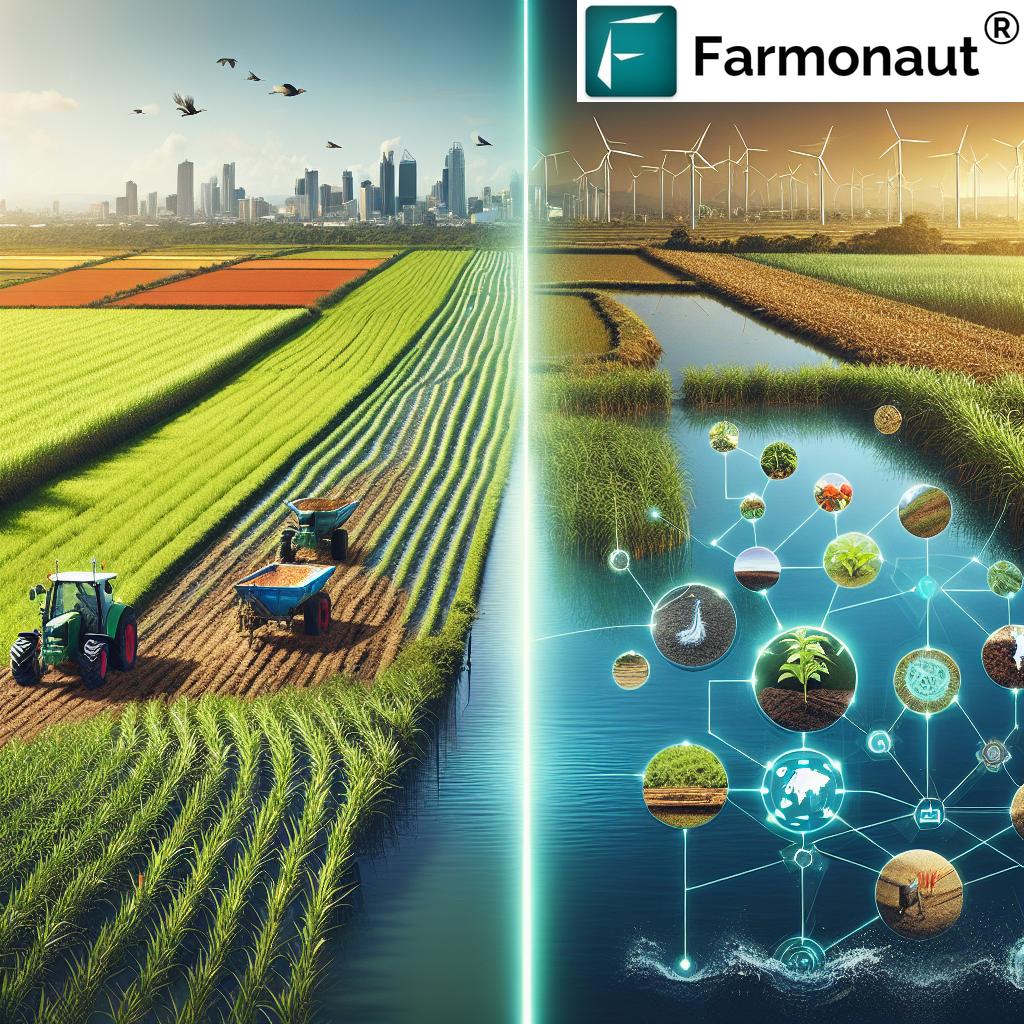
Precision Farming: A Game-Changer for Guyana
One of the most promising aspects of this collaboration is the potential implementation of precision farming techniques. These advanced methods use data-driven insights to optimize every aspect of crop production, from planting to harvesting. By adopting these techniques, Guyana could see significant improvements in crop yield optimization and resource efficiency.
- Satellite-based crop monitoring for real-time insights
- AI-powered decision support systems for farm management
- Precision application of fertilizers and pesticides
- Smart irrigation systems for optimal water usage
These technologies, when implemented effectively, could lead to substantial increases in productivity while reducing environmental impact. For instance, smart irrigation systems can help conserve water resources, a critical consideration in the face of climate change.
Agritech Solutions: Bridging the Technology Gap
In the realm of agricultural technology, companies like Farmonaut are at the forefront of providing agritech solutions for developing nations. Their satellite-based farm management platform could play a crucial role in Guyana’s agricultural transformation. By leveraging such technologies, Guyana can leapfrog traditional farming methods and adopt state-of-the-art practices.
Explore Farmonaut’s cutting-edge agricultural solutions:
Farmonaut’s platform offers:
- Satellite-based crop health monitoring
- AI-driven advisory systems for personalized farming insights
- Digital agriculture platforms for comprehensive farm management
- Agricultural data management tools for informed decision-making
These tools could empower Guyanese farmers with the knowledge and insights needed to maximize their yields and minimize risks.
Sustainable Agriculture: A Path to Long-Term Prosperity
The Guyana-India collaboration places a strong emphasis on sustainable agriculture practices. This focus is crucial for ensuring long-term food security and economic stability. By implementing climate-resilient farming methods, Guyana can better prepare for environmental challenges while maintaining productive agricultural output.
“India’s collaboration with Guyana aims to implement sustainable agriculture practices across 75% of Guyana’s arable land by 2030.”
Key areas of focus include:
- Soil health monitoring technology for optimal soil management
- Organic farming practices to reduce chemical inputs
- Crop rotation and diversification strategies
- Agroforestry and integrated farming systems
These practices not only contribute to environmental conservation but also help in creating a more resilient agricultural sector capable of withstanding climate variability.
Digital Agriculture: Empowering Farmers with Information
The implementation of digital agriculture platforms stands to revolutionize how farming is done in Guyana. These platforms provide farmers with access to vital information and services, bridging the gap between traditional farming methods and modern agricultural science.
Harness the power of digital agriculture with Farmonaut’s mobile apps:
Benefits of digital agriculture platforms include:
- Real-time weather forecasts and alerts
- Market price information for better decision-making
- Access to expert advice and best practices
- Community forums for knowledge sharing among farmers
By embracing these digital tools, Guyanese farmers can make more informed decisions, leading to improved productivity and profitability.

Enhancing Agricultural Infrastructure
A critical component of the Guyana-India collaboration is the focus on enhancing agricultural infrastructure. This includes improvements in irrigation systems, storage facilities, and transportation networks. By upgrading these essential elements, Guyana can significantly reduce post-harvest losses and improve the overall efficiency of its agricultural sector.
Key infrastructure developments may include:
- Modern irrigation canals and water management systems
- Cold storage facilities for perishable goods
- Improved rural road networks for better market access
- Processing facilities for value-added agricultural products
These infrastructure improvements will not only boost agricultural productivity but also create new employment opportunities in rural areas.
Leveraging Indian Expertise in Agricultural Research
India’s rich tradition of agricultural research and development can greatly benefit Guyana’s farming sector. Collaboration in this area could lead to the development of high-yielding, climate-resilient crop varieties suited to Guyana’s specific environmental conditions.
Areas of potential research collaboration include:
- Development of drought-resistant crop varieties
- Pest and disease management strategies
- Soil fertility enhancement techniques
- Post-harvest technology and food processing innovations
By tapping into India’s expertise, Guyana can accelerate its agricultural research capabilities and develop solutions tailored to its unique challenges.
Capacity Building and Skill Development
For the successful implementation of advanced agricultural practices, capacity building and skill development are crucial. The Guyana-India collaboration is expected to include comprehensive training programs for farmers, agricultural extension workers, and researchers.
These programs may cover:
- Training on precision farming techniques
- Workshops on sustainable agriculture practices
- Technical training on the use of agricultural technology
- Leadership and management skills for agribusiness
By investing in human capital, Guyana can ensure the long-term success and sustainability of its agricultural transformation.
Financial Services and Agricultural Credit
Access to finance is often a significant barrier for farmers looking to adopt new technologies or expand their operations. The collaboration between Guyana and India could lead to innovative financial solutions tailored to the agricultural sector.
Potential financial initiatives may include:
- Microfinance programs for small-scale farmers
- Agricultural insurance schemes to mitigate risks
- Low-interest loans for farm modernization
- Financial literacy programs for rural communities
These financial services can provide the necessary support for farmers to invest in modern farming techniques and technologies.
Market Access and Value Chain Development
Improving market access and developing robust agricultural value chains are essential for maximizing the benefits of increased productivity. The Guyana-India collaboration could focus on creating efficient market linkages and promoting value-added processing.
Key initiatives in this area might include:
- Establishment of farmer producer organizations
- Development of e-commerce platforms for agricultural products
- Support for agro-processing industries
- Export promotion for Guyanese agricultural products
By strengthening these aspects, Guyana can ensure that increased agricultural productivity translates into tangible economic benefits for its farmers and the broader economy.
Environmental Conservation and Biodiversity
As Guyana seeks to expand its agricultural sector, it’s crucial to balance growth with environmental conservation. The collaboration with India can bring valuable insights into sustainable farming practices that preserve biodiversity and protect natural resources.
Focus areas for environmental conservation include:
- Agroforestry practices to maintain forest cover
- Integrated pest management to reduce chemical use
- Conservation of native plant species and landraces
- Sustainable water management practices
By adopting these eco-friendly approaches, Guyana can ensure that its agricultural growth doesn’t come at the cost of its rich natural heritage.
Leveraging Technology for Agricultural Traceability
In today’s global market, traceability in the food supply chain is becoming increasingly important. The Guyana-India collaboration could introduce advanced traceability systems that enhance food safety and build consumer trust.
Discover how Farmonaut’s API can enhance your agricultural traceability systems:
Farmonaut API
API Developer Docs
Benefits of implementing traceability systems include:
- Enhanced food safety and quality assurance
- Improved supply chain management
- Better market access for Guyanese products
- Increased consumer confidence in agricultural exports
By implementing these systems, Guyana can position itself as a reliable supplier of high-quality agricultural products in the global market.
Guyana-India Agricultural Collaboration Opportunities
| Agricultural Sector | Current Challenges in Guyana | Proposed Indian Tech Solutions | Potential Impact |
|---|---|---|---|
| Rice Cultivation | Low productivity, water management issues | Precision farming techniques, smart irrigation systems | 20-30% increase in yield, 15% reduction in water usage |
| Sugarcane Production | Declining yields, high production costs | Mechanization, advanced harvesting techniques | 25% increase in productivity, 20% reduction in production costs |
| Fruit and Vegetable Farming | Post-harvest losses, limited market access | Cold storage technology, e-commerce platforms | 40% reduction in post-harvest losses, expanded market reach |
| Soil Management | Soil degradation, nutrient depletion | Soil health monitoring technology, precision fertilization | 30% improvement in soil health, 25% increase in nutrient efficiency |
| Climate Resilience | Vulnerability to climate change | Climate-resilient crop varieties, weather forecasting systems | 50% reduction in climate-related crop losses |
Challenges and Considerations
While the potential benefits of the Guyana-India collaboration are significant, it’s important to acknowledge and address potential challenges:
- Adaptation of technologies to local conditions
- Cultural and language barriers in knowledge transfer
- Initial investment costs for new technologies
- Potential resistance to change from traditional farming communities
Overcoming these challenges will require careful planning, cultural sensitivity, and a phased approach to implementation.
The Road Ahead: A Vision for Guyana’s Agricultural Future
As we look to the future, the Guyana-India collaboration in agriculture holds immense promise. By leveraging India’s expertise and Guyana’s natural resources, this partnership has the potential to:
- Transform Guyana into a regional agricultural powerhouse
- Ensure food security and reduce dependency on imports
- Create new employment opportunities in the agricultural sector
- Position Guyana as a leader in sustainable agriculture practices
The success of this collaboration could serve as a model for other developing nations, showcasing how international partnerships can drive sustainable economic growth and agricultural innovation.
Conclusion: Sowing the Seeds of Progress
The Guyana-India collaboration in agriculture represents a pivotal moment in Guyana’s journey towards sustainable economic growth. By embracing smart farming solutions, leveraging cutting-edge technologies, and implementing sustainable practices, Guyana is poised to unlock its vast agricultural potential.
As we move forward, it’s crucial that all stakeholders – from policymakers to farmers – work together to ensure the success of this transformative initiative. With dedication, innovation, and a commitment to sustainability, Guyana can build a robust, technologically advanced agricultural sector that not only feeds its people but also contributes significantly to its economic prosperity.
The seeds of progress have been sown. Now, it’s time to nurture them and watch as Guyana’s agricultural sector blossoms into a model of innovation and sustainability for the world to emulate.
FAQ Section
Q: How will precision farming techniques benefit Guyanese farmers?
A: Precision farming techniques will help Guyanese farmers optimize their resource use, increase crop yields, and reduce environmental impact through data-driven decision-making and targeted interventions.
Q: What role can Farmonaut play in Guyana’s agricultural transformation?
A: Farmonaut can provide satellite-based crop monitoring, AI-driven advisory systems, and digital agriculture platforms to help Guyanese farmers make informed decisions and improve their productivity.
Q: How will sustainable agriculture practices contribute to Guyana’s economic growth?
A: Sustainable agriculture practices will ensure long-term food security, reduce environmental degradation, and create opportunities for value-added products, contributing to stable and sustainable economic growth.
Q: What are the potential challenges in implementing new agricultural technologies in Guyana?
A: Challenges may include initial investment costs, adaptation to local conditions, training requirements, and potential resistance to change from traditional farming communities.
Q: How can small-scale farmers in Guyana benefit from this collaboration?
A: Small-scale farmers can benefit through access to affordable precision farming tools, improved financial services, capacity-building programs, and better market linkages facilitated by the collaboration.









